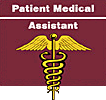 Return to the Home Page
Return to the Home Page
SYMPTOMS: Runny and/or Stuffy Nose, Sneezing, Watery Eyes, Itchy Eyes, Itchy Nose, and/or Itchy Throat.
Have there been symptoms for more than 7 days without
improvement?
Is there a fever over 100 degrees Fahrenheit lasting more
than 2 days?
Is the nose bleeding more than a little?
Are you having
severe headaches?
Is there an earache?
ACTIVITIES: You should avoid as much dust, smoke,
and pollen as possible. Otherwise, it is usually not necessary to limit
your activities. Using a cool mist vaporizer (humidifier) may help relieve
congestion during periods of rest or sleep. Try a hot compress to the
face.
MEDICATIONS: Most people can find effective remedies for reducing the symptoms. If you don't have uncontrolled high blood pressure or prostate problems, you may take any over-the-counter antihistamine or antihistamine/decongestant, such as Benadryl, Tavist-D, or Dimetapp. You may have to try several different brands till you find one that works. Tylenol, aspirin, or Motrin will relieve most headaches. Take no more than the recommended dosage.
Infants usually will not respond to allergy medicines before 18 to 24 months old. To help babies breathe more easily, mucus can be gently suctioned from the nose with a bulb syringe. Saline nose drops (made with 1 cup water and 1/4 teaspoon salt) aid in liquefying mucus before suctioning.
DIET: Usually no changes in the diet are needed. If
your nose is especially runny or stuffy, then drink more water and
juices. If you think a certain food is causing allergy symptoms,
then it should be avoided.
CONTACT YOUR DOCTOR FOR ANY OF THE
FOLLOWING:
1. Your temperature is over 103 degrees Fahrenheit.
2. You have
trouble breathing in your chest.
3. You see no improvement after a few
days.
4. You are unable to find a non-prescription medicine that helps.
